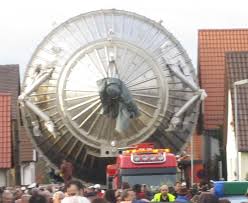KATRIN Experiment:

The KATRIN experiment in Germany has published the most stringent upper limit yet on the sum of the masses of the three types of neutrinos, capping it at 8.8 × 10⁻⁷ times the mass of an electron—twice as precise as previous estimates.
- The Karlsruhe Tritium Neutrino (KATRIN) Experiment is a precision physics project that studies the mass of neutrinos using beta decay of tritium.
- Developed by conducted by an international collaboration led by the Karlsruhe Institute of Technology (KIT), Germany.
- Major institutions from Germany, the U.S., and other European countries contribute to the experiment.
- Objective: To directly measure the absolute mass of neutrinos—a major unsolved question in particle physics.
- Key Features of KATRIN:
- Massive Detector: Uses a 200-tonne spectrometer for ultra-precise electron energy measurements during tritium decay.
- Tritium Disintegration Monitoring: Observes beta decay of tritium to track maximum energy of electrons, revealing neutrino mass.
- Robust Data Collection: Analysed over 36 million electrons across 259 days, making it one of the most data-rich neutrino studies.
- Direct Measurement Method: Unlike cosmological studies, KATRIN does not rely on early universe assumptions or models.




